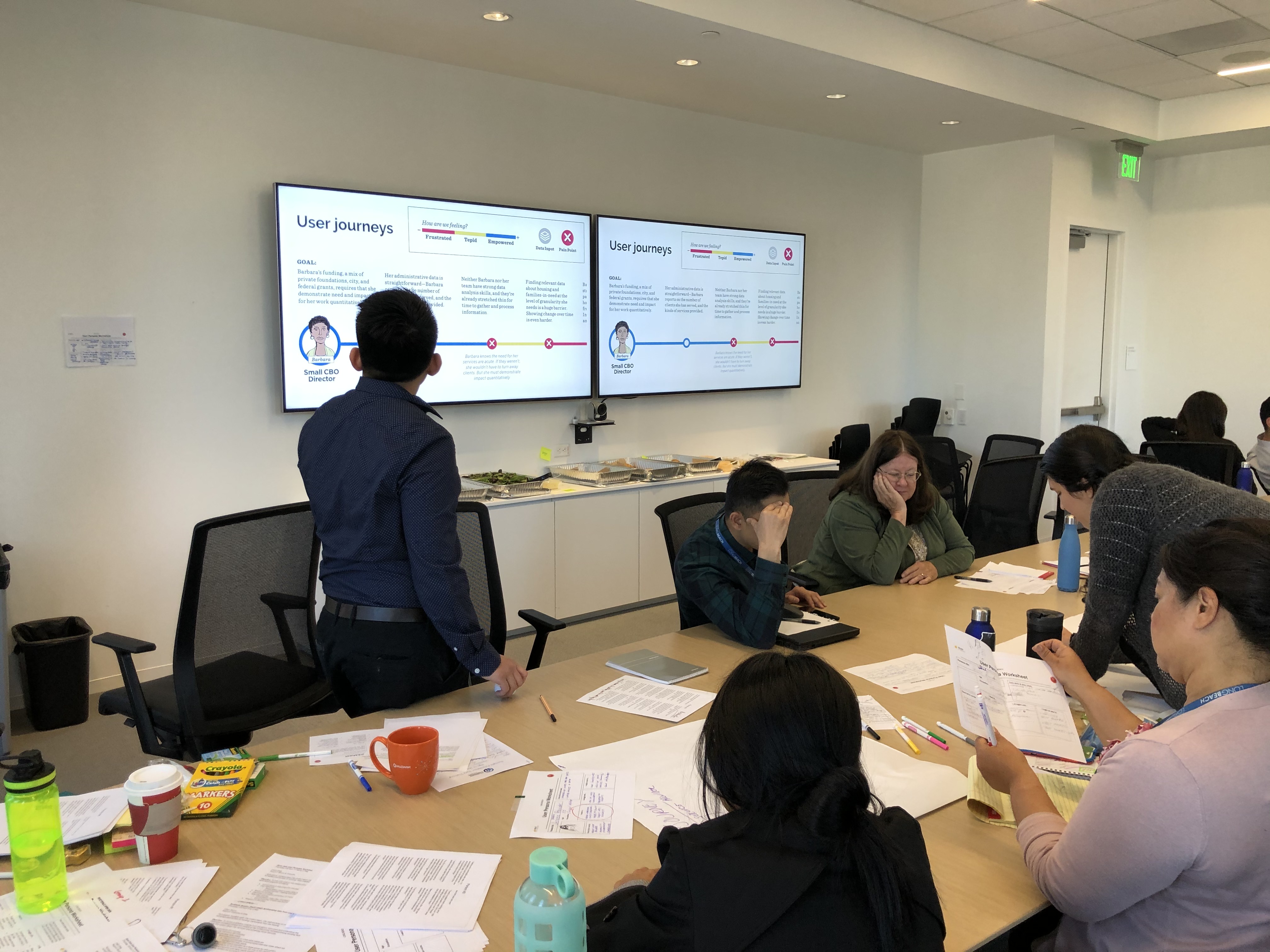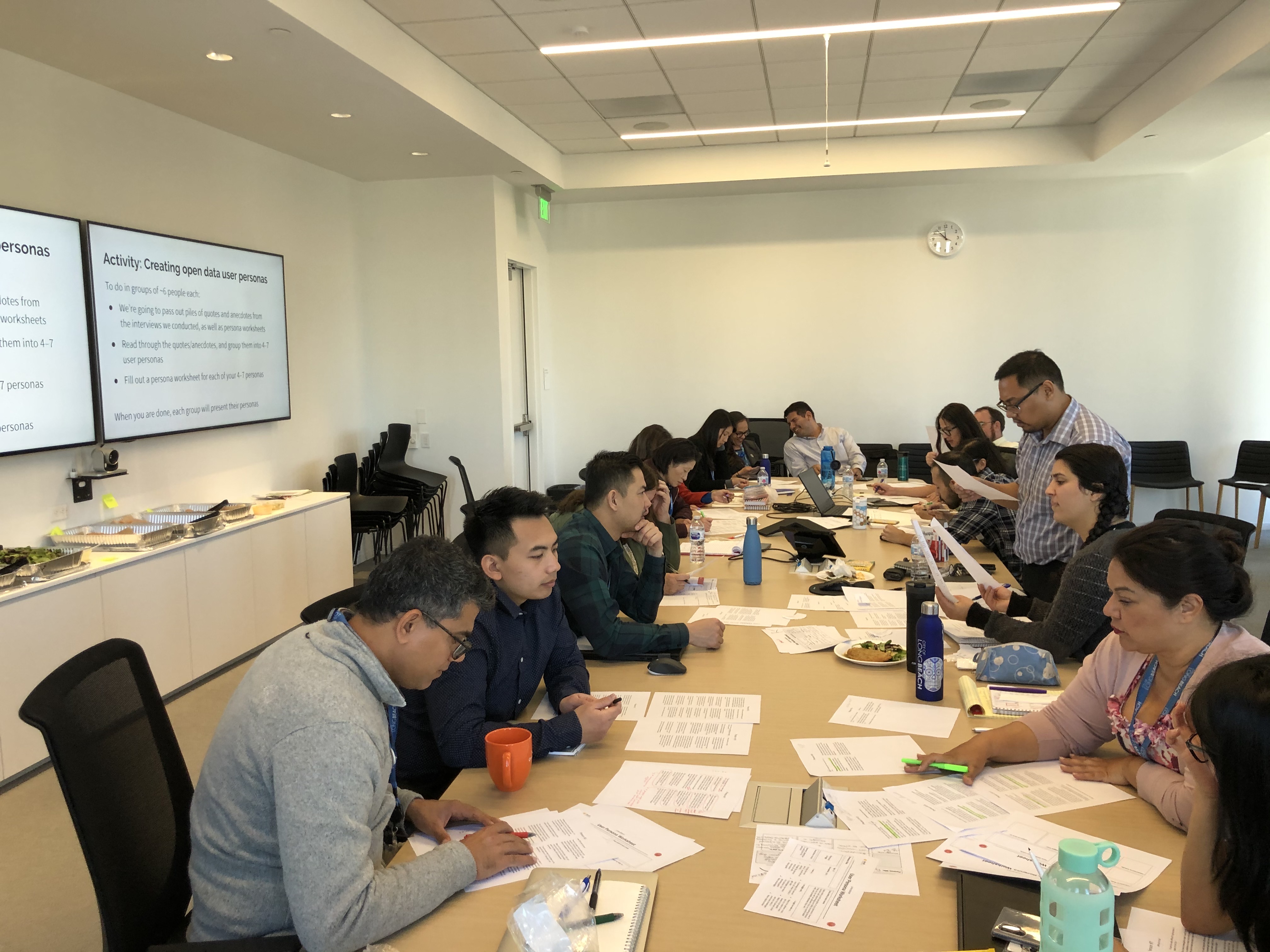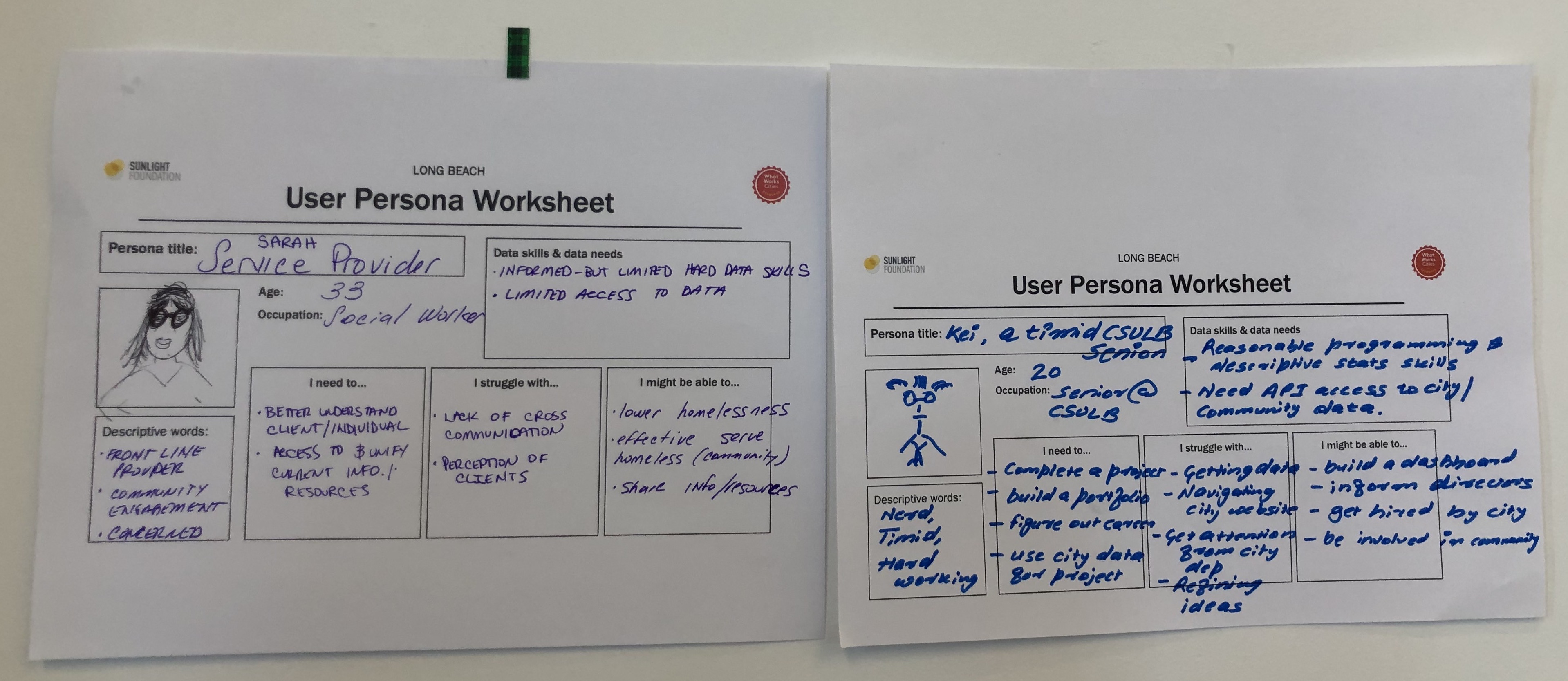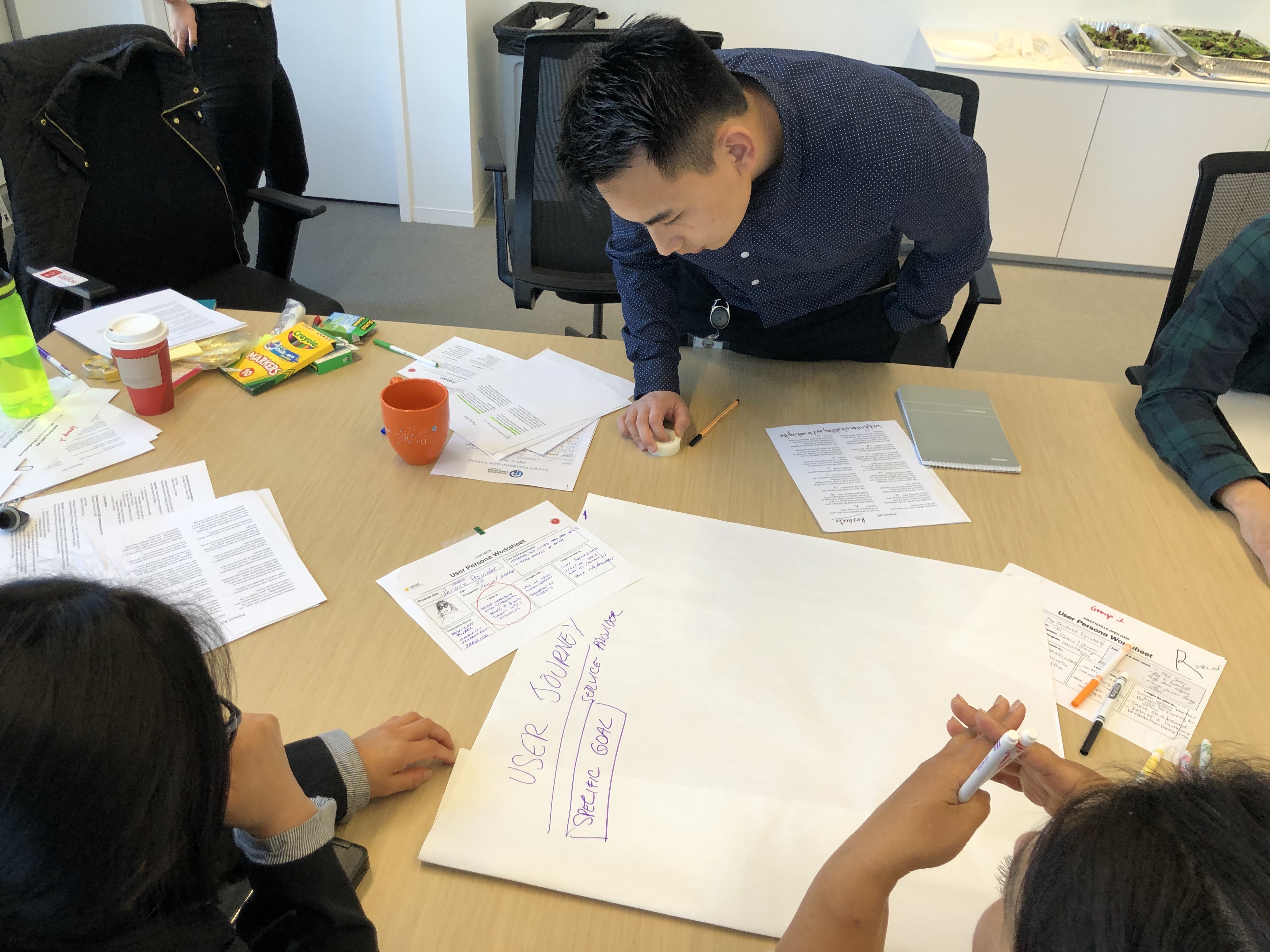Workshops to teach government officials about user-centered design
Summary
I have had the opportunity to conduct workshops on user-centered design — particularly user personas and journey mapping — for government staff in several cities in the United States, as well as for a group of civic-technology organizations in Nepal.
This page will explore a workshop I led for government staff in Long Beach, CA.
Context
The projects of my team at the Sunlight Foundation were focused on helping city governments facilitate community access to open data using user-centered design methods. As part of this, we generally held in-person design synthesis sessions where we explored the user research that had been done and discussed opportunities for what the next steps of the work could look like. Doing these sessions required teaching staff basic principles of user-centered design to ensure alignment.
Although our work with cities was usually focused on one specific open-data-related project, consistently one of the biggest pieces of feedback we received was that our teachings around user-centered design were one of the most impactful components of our work. As a result, we shifted to a model of separating the user-centered-design teachings from the synthesis into an entire separate workshop, with this workshop open to any city staff who want to attend (as opposed to just the project team). Our workshop in Long Beach was the first case of this new model.
Goal
To train government staff on key principles of user-centered design, to help with open data programs and projects as well as other initiatives and general staff development.
Content
Workshop outline
Date/time: Thursday, February 6, 2020 @ 11am–2pm
Participants: Sunlight staff, City project team, City staff working on preventing homelessness/access to housing, other interested City staff
Objective: To train City staff on key design principles and user research for impact-driven open data programs and projects.
Agenda:
- Introductions and objectives (20 minutes)
- User personas
- Presentation: Intro to open data user personas (15 minutes)
- Group exercise: Creating user personas (60 minutes)
- Break (15 minutes)
- Discussion on created personas (10 minutes)
- Journey mapping / User journeys
- Presentation: Data user journeys (10 minutes)
- Group exercise: Create user journeys (25 minutes)
- Wrap-up (15 minutes)
Slide deck
In retrospect
While our engagements with cities of course have specific focuses and intended outcomes, I think the impact there pales in comparison to the potential impact of organizational transformation. I get really excited when I see staff finding this useful.
For example, in our Long Beach workshop, there were several participants from the city’s Human Resources department — and after the workshop was over, they told us that they were currently in the middle of redesigning the city’s hiring process, and that the workshop was helpful for thinking about that. This is the kind of deeper change that I think is really promising, and that I’m grateful our work can help serve as a catalyst for!
Acknowledgements
This was definitely not a solo effort!
While I think it’s fair to say that the majority of the slides were created by me, and that I have led the development of our training on this topic, other colleagues have also made important contributions.
For this particular workshop in Long Beach, I led the training but two of my colleagues helped facilitate the group breakouts and we all planned the workshop outline together. They also led our subsequent design synthesis sessions with Long Beach.
The past city work shown in the slides is, of course, the collective work of our team (plus, in a few cases, others).



